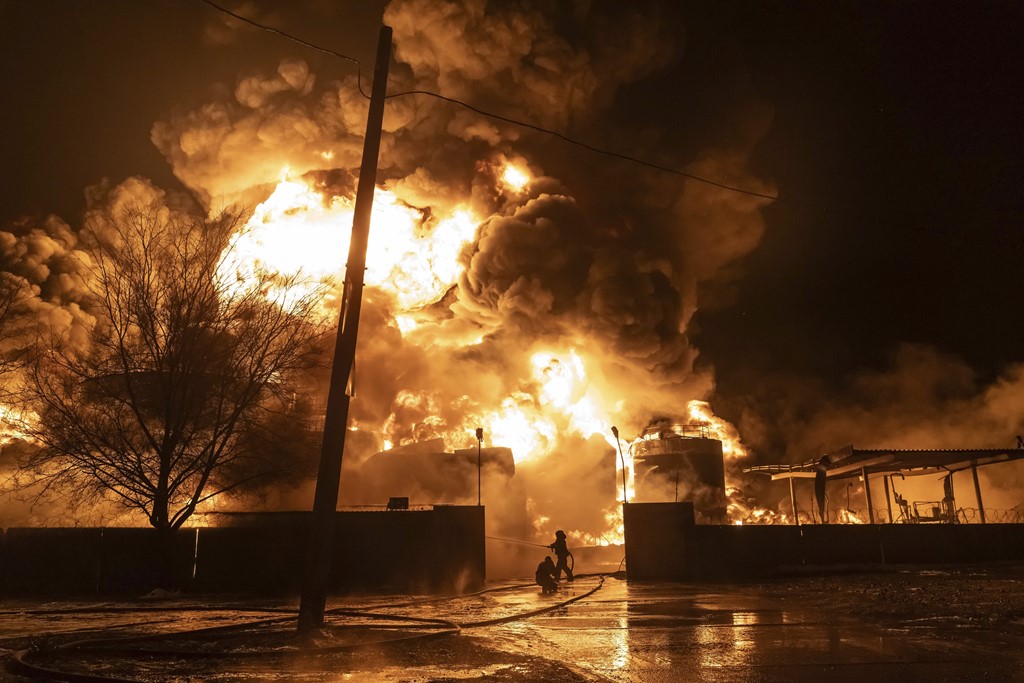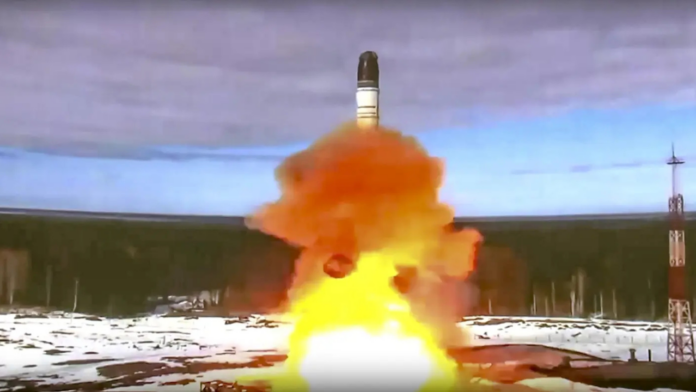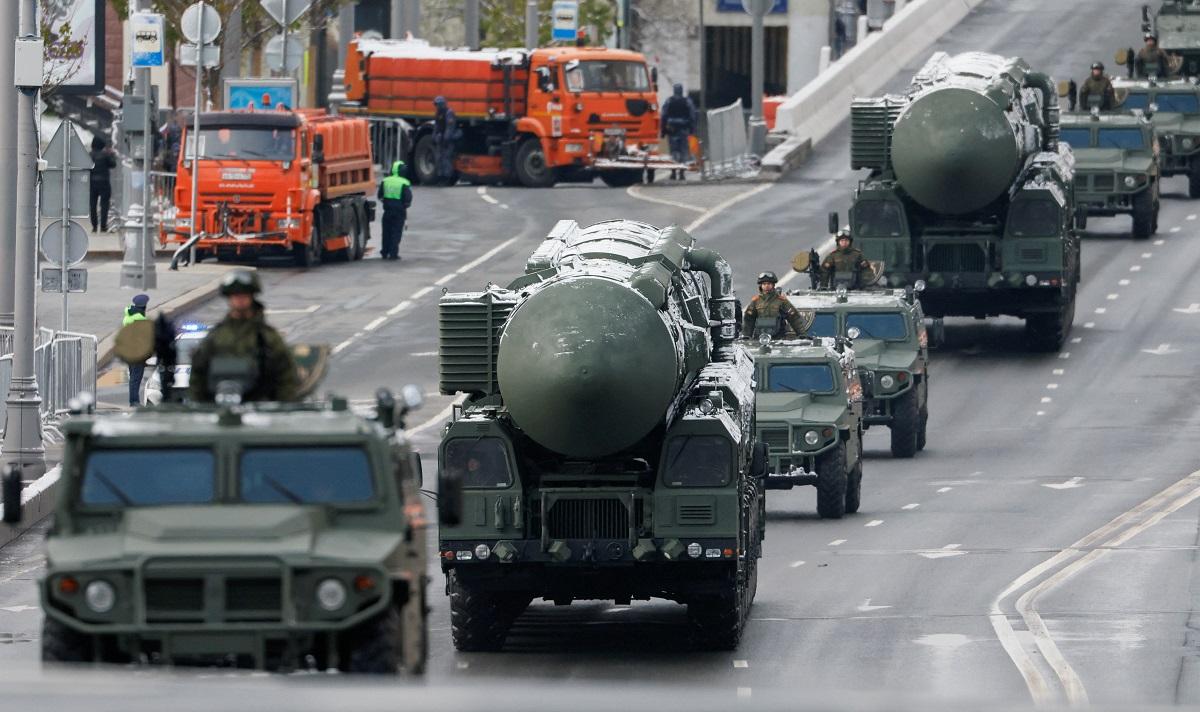Unprecedented Use of Intercontinental Ballistic Missile in Active Combat
In a dramatic escalation of the 33-month-old war, Russia launched an intercontinental ballistic missile (ICBM) targeting Ukraine, Kyiv’s air force reported on Thursday. This marks the first known military use of such a weapon, traditionally designed for delivering nuclear warheads over thousands of kilometers, in an active conflict. While the missile’s warhead type remains unconfirmed, Kyiv did not indicate it was nuclear-armed.
The attack targeted critical infrastructure in Dnipro, a central-eastern Ukrainian city, causing damage to an industrial enterprise and sparking fires. Two individuals were reported injured. The missile was launched from Russia’s Astrakhan region, more than 700 kilometers from the target site, according to Ukrainian military sources.
The move has been described as “totally unprecedented” by international security experts, who highlight the high cost and precision of ICBMs as inconsistent with their use in conventional warfare.
A New Layer of Escalation in a Volatile Conflict
The ICBM launch comes amid mounting tensions following Ukraine’s deployment of U.S. and British missiles against Russian targets earlier this week. Kyiv’s strikes included the use of U.S.-supplied ATACMS missiles and British Storm Shadow cruise missiles on Russian territory, actions Moscow has repeatedly labeled as significant escalations.
Russia’s response, which included the ICBM, a Kinzhal hypersonic missile, and seven Kh-101 cruise missiles, underscores its readiness to intensify the conflict. Of the Kh-101 missiles, six were intercepted, Ukrainian officials reported.
While no immediate comment was provided by the Kremlin on the ICBM deployment, Ukrainian media suggested the missile was an RS-26 Rubezh—a solid-fueled intercontinental ballistic missile capable of carrying an 800-kilogram nuclear warhead with a range of 5,800 kilometers. Developed in 2012, the RS-26 is a highly advanced weapon, standing 12 meters tall and weighing 36 tons.

Global Alarm Over Historic ICBM Deployment
The unprecedented use of an ICBM in combat has drawn sharp reactions from international security experts and observers. Ulrich Kuehn, a German security analyst, remarked that this may be the first historical instance of an ICBM being used in war, targeting civilian infrastructure. Similarly, Andrey Baklitskiy from the U.N. Institute for Disarmament Research described the launch as “totally unprecedented,” questioning the logic behind deploying such an expensive and precise weapon for conventional strikes.
Defense Express, a Ukrainian defense consultancy, questioned whether the U.S., Kyiv’s principal ally, had been pre-warned about the missile launch. Such notifications are critical to preventing unintended escalations, as missile warning systems could misinterpret the launch as a prelude to a broader attack. NATO, when approached for comment, had yet to respond.
Adding to the tension, Russian President Vladimir Putin recently lowered the threshold for nuclear strikes, signaling that broader conventional attacks on Russian assets could provoke a nuclear response. This adjustment follows Ukraine’s intensified use of Western-supplied weaponry to hit Russian bases, including those deep inside its territory.
Ripple Effects and the Threat of Wider Conflict
The ICBM launch coincides with a backdrop of heightened geopolitical tension, with both sides intensifying efforts to secure favorable positions before potential peace talks. The warring nations anticipate a shift in U.S. leadership, with President Joe Biden set to leave office and former President Donald Trump, a critic of Ukraine aid, likely to advocate for negotiations.
Meanwhile, Russia has consistently warned that the use of Western weapons to strike targets within its territory constitutes a dangerous escalation. Moscow argues that such attacks justify heightened responses, while Kyiv defends its actions as necessary to counter Russian aggression and disrupt rear bases supplying Moscow’s invasion forces.
For the Ukrainian military, hitting deep targets is part of a broader strategy to undermine Russia’s operational capabilities. However, Russia’s retaliatory measures, now including ICBMs, introduce a new and alarming dimension to the conflict.
ICBM Deployment: A Dangerous Precedent
The introduction of intercontinental ballistic missiles into the Ukraine conflict sets a potentially dangerous precedent for global warfare. ICBMs are primarily strategic weapons, designed for nuclear deterrence rather than conventional battlefields. Their deployment against civilian infrastructure raises questions about the evolving nature of modern warfare and the thresholds nations are willing to cross.
As the world watches, the use of such powerful weaponry underscores the fragile state of international peace and security. Analysts warn that this escalation could have long-term implications, not just for the Ukraine war but also for global stability, as it blurs the lines between conventional and nuclear warfare.
The unprecedented ICBM strike adds a grim milestone to the ongoing conflict, triggering concerns about the trajectory of the war and the lengths to which both sides will go to secure their objectives. With no resolution in sight, the risk of further escalation looms large, threatening to redraw the boundaries of modern combat and geopolitical stability


